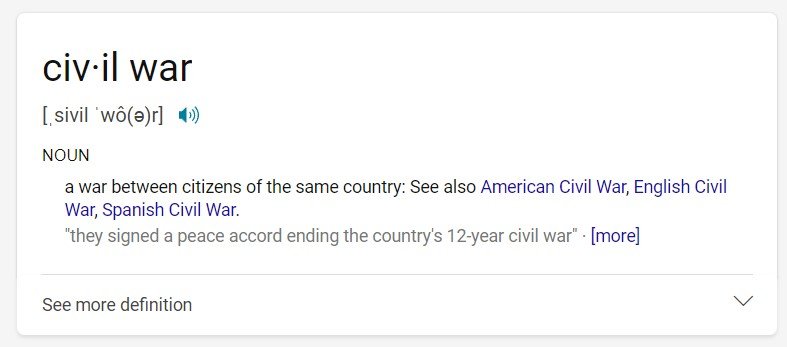AndreusMaximus
Master
Starting a new thread for this, which came up in a thread of a different subject.
If they do though it'll start the Second Civil War.
Second?
There was never a first.
Not a civil war.
The seceeding states were not attempting to take control of the central state. They were walking away.
That was a war to prevent southern independence. That was a war of northern aggression. Nothing more; nothing less.
Yeah, because nothing says walking away peacefully like attacking federally owned forts.
If you want to argue that the Confederate States should've had the right to secede, I'm perfectly willing to listen to that argument, but if you're acting like they were all just trying to walk away peacefully when the Union States shot them in the back, well, that's about as accurate as the left's narrative about George Floyd.
What the Hell is in the water down there in Bloomington?
First you want to compromise your natural rights with serpents and now this.
Here you go.
The War of Secession – Abbeville Institute
www.abbevilleinstitute.org
Next thing I know you're going to be claiming lincoln freed slaves.
I never said I want to compromise my rights; I just said that if we could ever get to the point of a real compromise, it would better than what we're getting now.
Haven't had time to read the whole thing yet; I'll try to get to it tomorrow. In the first bit, though, it has already stated that the Confederate States were, as I pointed out, the first to attack the Union, not the other way around. Hardly the thing that those looking for a diplomatic and peaceful secession would do.
Name someone who deserves the credit more than he does.
P.S.
Quickly skimmed the rest of the article after typing the above; unless I missed it, it looks like it does the typical thing I've noticed with those who argue that the Civil War had nothing to do with slavery, which is never cite a single written source from the time period, and conveniently forget to even mention the fact that most of the Confederate States explicitly cited the preservation of slavery (their "peculiar institution") as a primary reason for wanting to secede, and most of the top politicians of the Confederate States reiterated this in their speeches. Tomorrow I'll try to find time to give the article a more thorough read, and provide some citations for the above.
Show me one.








